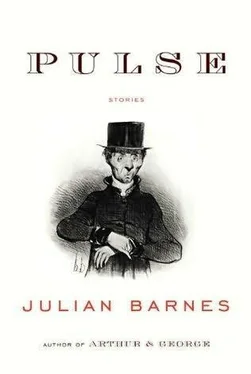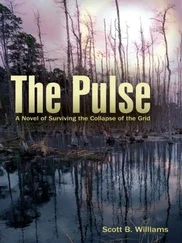In the production I saw, the blinding was done offstage. I seem to remember Gloucester’s legs flailing from one of the brick wings, though perhaps that is a later invention. But I do remember his screams, and finding them the more terrifying for being offstage: perhaps what you can’t see frightens you more than what you can. And then, after the first eye was put out, it was lobbed on to the stage. In my memory – in my mind’s eye – I see it rolling down the rake, faintly glistening. More screams, and another eye was tossed out from the wings.
They were – you guessed – peeled lychees. And then this happened: Cornwall, lanky and brutish, stamped back onstage, tracked down the rolling lychees, and set his foot on Gloucester’s eyes a second time.
Another game, from back when I was a hiccuping boy at primary school. In the morning break we used to race model cars in the asphalt playground. They were about four inches long, made from cast metal, and had real rubber tyres which you could roll off the wheels if you felt like simulating a pit stop. They were painted in the bright colours worn by the racing marques of the day: a scarlet Maserati, a green Vanwall, a blue… perhaps something French.
The game was simple: the car that went the furthest won. You pressed your thumb down on to the middle of the long bonnet, pulling your fingers up into a loose fist, and then, at a signal, transferred the pressure swiftly from a downwards to a forwards direction, sending your car off into the distance. There was a certain technique involved in obtaining maximum propulsion; the danger being that the knuckle of your middle finger, held a fraction of an inch above the playground’s surface, would scrape against the asphalt, tearing skin and costing you the race. The wound would scab up, and you would have to adjust your hand, dropping the knuckle of the third finger into the danger area. But this could never produce the same velocity, so you went back to the usual, middle-finger technique, often ripping off the newly formed scab.
Your parents never warn you about the right things, do they? Or perhaps they can only warn you about the immediate, local stuff. They bandage the knuckle of your right middle finger and warn against getting it infected. They explain about the dentist, and how the pain will wear off afterwards. They teach you the highway code – or at least, as it applies to junior pedestrians. My brother and I were once about to cross a road when our father put on a firm voice and instructed us to ‘Pause on the kerb.’ We were at that age when a primitive understanding of language is intersected by a kind of giddiness about its possibilities. We looked at one another, shouted, ‘Paws on the kerb’, then squatted down with our hands flat on the edge of the roadway. Our father thought this was very silly; no doubt he was already calculating how long the joke would run.
Nature warned us, our parents warned us. We understood about knuckle-scabbing and traffic. We learnt to look out for a loose stair carpet, because Grandma had once nearly taken a tumble when one of her brass stair rods, removed for annual polishing, hadn’t been replaced properly. We learnt about thin ice, and frostbite, and evil boys who put pebbles and sometimes even razor blades into snowballs – though none of these warnings was ever justified by events. We learnt about nettles and thistles, and how grass, which seemed such harmless stuff, could give you a sudden burn, like sandpaper. We were warned about knives and scissors and the danger of the untied shoelace. We were warned about strange men who might try to lure us into cars or lorries; though it took us years to work out that ‘strange’ did not mean ‘bizarre, hunchbacked, dribbling, goitred’ – or however we defined strangeness – but merely ‘unknown to us’. We were warned about bad boys and, later, bad girls. An embarrassed science master warned us against VD, misleadingly informing us that it was caused by ‘indiscriminate sexual intercourse’. We were warned about gluttony and sloth and letting down our school, about avarice and greed and letting down our family, about envy and wrath and letting down our country.
We were never warned about heartbreak.
I used the word ‘complicity’ a bit ago. I like the word. An unspoken understanding between two people, a kind of presense if you like. The first hint that you may be suited, before the nervous trudgery of finding out whether you ‘share the same interests’, or have the same metabolism, or are sexually compatible, or both want children, or however it is that we argue consciously about our unconscious decisions. Later, when we look back, we will fetishise and celebrate the first date, the first kiss, the first holiday together, but what really counts is what happened before this public story: that moment, more of pulse than of thought, which goes, Yes perhaps her, and, Yes perhaps him.
I tried to explain this to Ben, a few days after his party. Ben is a crossword-doer, a dictionary-lover, a pedant. He told me that ‘complicity’ means a shared involvement in a crime or sin or nefarious act. It means planning to do something bad.
I prefer to keep the term as I understand it. For me it means planning to do something good. She and I were both free adults, capable of making our own decisions. And nobody plans to do anything bad at that moment, do they?
We went to a film together. I had as yet no clear sense of her temperament and habits. Whether she was punctual or unpunctual, easy-going or quick-tempered, tolerant or severe, cheerful or depressive, sane or mad. That may sound a crude way of putting it; besides, understanding another human being is hardly a matter of box-ticking in which the answers stay the answers. It’s perfectly possible to be cheerful and depressive, easy-going and quick-tempered. What I mean is, I was still working out the default setting of her character.
It was a cold December afternoon; we arrived at the cinema in separate cars, as she was on call and might be bleeped back in to the hospital. I sat there, watching the film, yet equally alert to her reactions: a smile, silence, tears, a shrinking from violence – all would be like silent bleeps for my information. The heating in the cinema was underpowered, and as we sat there, elbow to elbow on the armrest, I found myself thinking outwards from me to her. Sleeve of shirt, sweater, jacket, raincoat, pea jacket, jumper – and then what? Nothing more before flesh? So, six layers between us, or perhaps seven if she was wearing something with sleeves under her sweater.
The film passed; her mobile didn’t pulse; I liked the way she laughed. It was already dark when we got outside. We had walked halfway to our cars when she stopped and held up her left hand, palm towards me.
‘Look,’ she said.
I didn’t know what I was meant to be looking for: proof of alcoholism, her line of life? I moved closer, and noticed, with the occasional help of passing headlights, that the tips of her first, second and third fingers had turned a pale yellowish colour.
‘Twenty yards without gloves,’ she said. ‘It happens just like that.’ She told me the name of the syndrome. It was a question of poor circulation, of the cold making the blood concentrate in more important areas and withdraw from the extremities.
She found her gloves: dark brown ones, I remember. She pulled them on a little haphazardly, then meshed her fingers to push the wool down to the base of each finger. We walked on, discussing the film, paused, smiled, paused, parted; my car was parked ten yards beyond hers. As I was about to unlock it, I glanced back. She was still standing on the pavement, looking down. I gave her a few moments, decided something was wrong, and walked back.
‘The car keys,’ she said without looking up at me. There wasn’t much light and she was digging in her bag, feeling as much as looking for them. Then she added, with sudden violence, ‘Come on, you fool.’
Читать дальше











